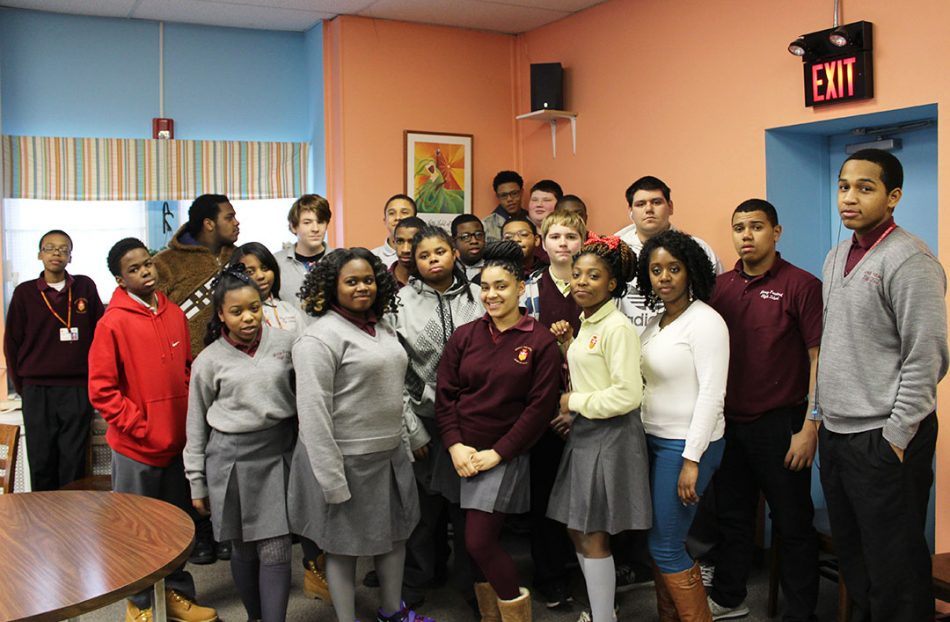
Cardinal Bevilacqua Community Center in Kensington is a hub for creativity, extracurricular activity and educational assistance. Dominique James, the director of the high school after-school program, spends her days offering a positive lifestyle to students in Philadelphia who might otherwise get caught up in a life of crime and poor choices.
What was your personal goal when you started working here at Cardinal Bevilacqua Community Center?
Definitely making an impact on students’ lives and changing what they want to be when they grow older. Setting goals for them is my priority.
Do you think the program being in an area like Kensington makes it more special?
Kensington is definitely an area that I feel needs a lot attention. I do different locations and this location will probably be my primary focus because of the surrounding area and the impact of what goes on around here such as drugs and prostitution. The students need help and focus and someone who cares about them.
How many high school students partake in these after school activities?
In this program we have 120 kids enrolled and that’s between the two sites. This site has probably around 80 to 90 kids, while our Mercy Vocational High School program has around 30, which is one reason why this location is a priority for me.
What do you think is the difference between students who attend these programs and those who don’t?
Students that attend this program get a lot more life skills that they need to achieve. They get something to do, morals, responsibility and leadership skills. Kids who don’t go to these programs may not get these things; they may not get the homework help and the structure base that they need in order to sustain themselves while going to school. They don’t have to fall into drugs or the idea of being bored and turning to robbery or vandalism.
What’s the summertime program like?
In the summer we have a work ready program where we work through Philly Youth Network and we place the children within places … like architecture firms, and they learn the skills of the trade and it could potentially lead to employment. We place them in internships where they do apprentice work under supervisors, we give them minimum wage jobs during the summer, and they have the chance to learn project-based learning.
What do you think they take most from summer programs?
I think they learn great money management skills because they get a debit card and they get paid every two weeks, so they get to see how to maintain their money in that way. For a lot of them, this is their first job so they learn how to do a lot of things for the first time. We get kids who don’t know how to fill out forms or sign their name and these programs teach these types of things.

Do you have any specific fond memories that you can look back on?
I can look back at all the ones that graduated. They still come back and I can’t get them to leave! When they come back, I can tell that I made a great impact on them because they’re asking me, “Ms. Dom, can you look over my résumé?” or “Can you review my college application for me?” That’s the best memory I can look back on, just knowing that there was an impact made on these students and seeing how they are evolving and how they’re making a big difference in their own lives.
Finally, what is the best thing the program has to offer to high school students?
It’s a safe haven. It’s a good, safe place to come to express themselves and be able to learn who they are.
Text and images by Clayton Russell and Sabrina Iglesias




Be the first to comment